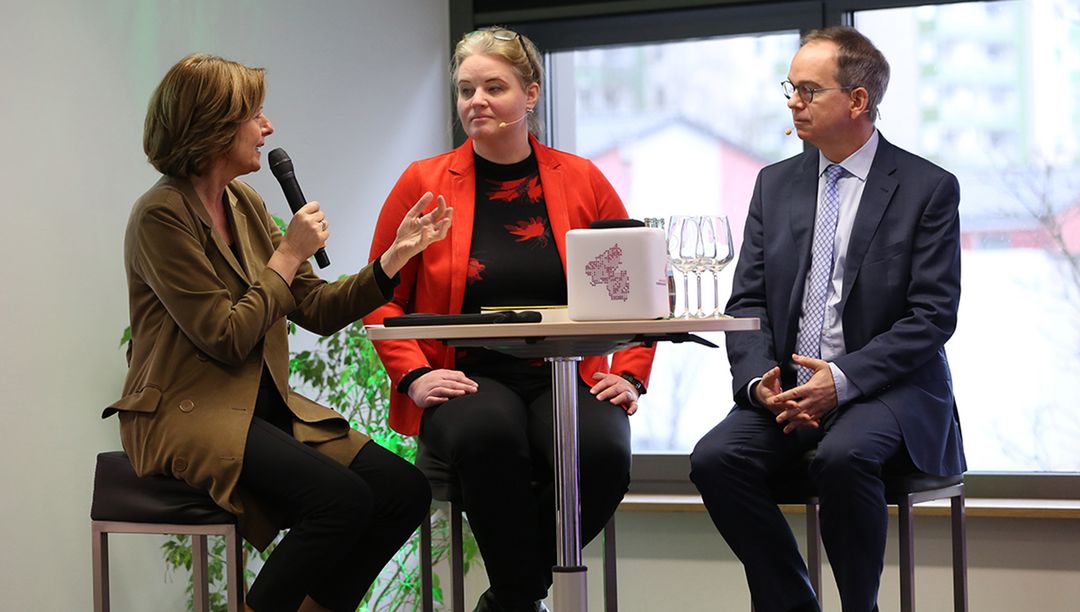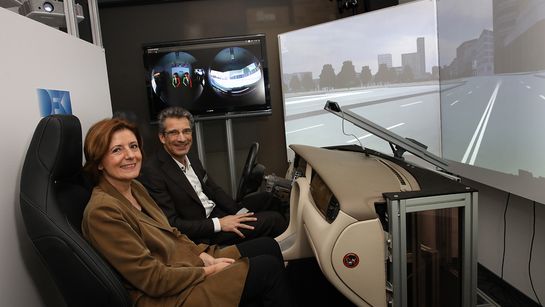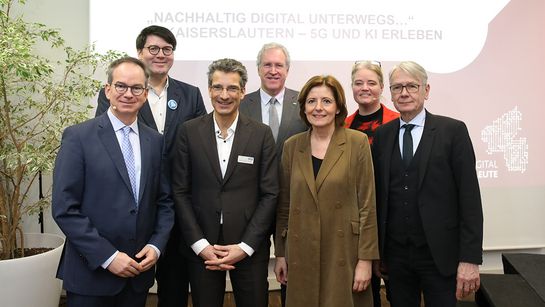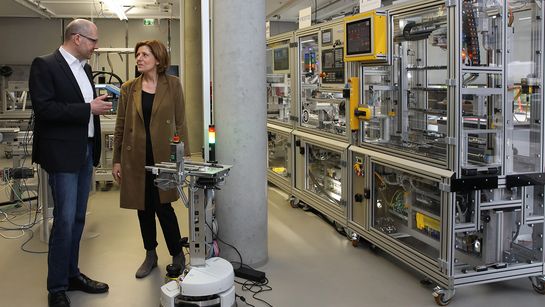“We are shaping digitalization. With the 5G model region Kaiserslautern, Rhineland-Palatinate will make a decisive contribution to the development of the new high-performance mobile Internet,” explained Minister President Malu Dreyer. Artificial intelligence will also fundamentally change the world of living and working, said the Minister President at “nachhaltig digital unterwegs...” (sustainable digital on the move) in Kaiserslautern. Around 150 citizens, multipliers and experts came to the German Research Center for Artificial Intelligence (DFKI) for the State Chancellery's new series of events at the German Research Center for Artificial Intelligence (DFKI) to find out about digitalization and discuss opportunities and risks - together with Prof. Antonio Krüger, CEO of DFKI, the “5G expert” Prof. Dr. Hans Schotten, DFKI, Prof. Dr. Katharina Zweig, TU Kaiserslautern, Dr. Jörg Dörr, Fraunhofer IESE and PD Dr. Michael Bortz, Fraunhofer ITWM, Dr. Martin Verlage, Managing Director of KL.digital GmbH and Lord Mayor Klaus Weichel.
“As the state government, we are committed to sustainable digital change in a generationally equitable manner, thus shaping digitalization. I am convinced that digitalization will help ensure that Rhineland-Palatinate remains as liveable as it is for future generations,” emphasized the Minister President. “5G networks are becoming a reality in Germany, in the first step here in Kaiserslautern. They create the basis for everyone to be able to use smart and AI-based applications in everyday life in the future. AI and 5G will make many things in everyday life faster and easier, said Minister President Malu Dreyer. For example, telemedicine could improve health care in rural areas. "We want technical innovation to lead to social and societal progress.” Rhineland-Palatinate offers very good location advantages for developers and users due to its research landscape. “This is why we are making available around 18 million euros up to 2023 to strengthen Rhineland-Palatinate's science in the field of AI,” explained the Minister President.
“5G and AI are key technologies for digitalization. Their interaction promises completely new application possibilities for industry and society. We want to further research and sustainably develop this synergy with the Technical University and DFKI in the Kaiserslautern model region. Particularly in new fields of technology such as 5G, it is important to identify beneficial applications and to create trust through conscientious research and social dialogue,” explained Prof. Dr. Hans Dieter Schotten, Scientific Director of the Intelligent Networks research area at DFKI and holder of the Chair for Radio Communication and Navigation at the Technical University of Kaiserslautern (TUK).
The event is the first of three events under the umbrella brand “sustainable digital on the move ...” which will take place between the Digital Forum 2019 in Mainz and the Digital Forum on 4 September 2020 in Trier. The focus is on digitalization in all areas of work and life. The “Living Labs” at DFKI provided true-to-life information about possible applications of artificial intelligence. At stations and projects such as the fire brigade drones, 5G masts made of wood, the intermunicipal network “Digital City”, AI-based monitoring for heart failure patients and geodata management, the guests were able to experience the opportunities offered by the new key technologies in many areas of life. “I would like to get into conversation with people and make it possible to experience what digitalization in Rhineland-Palatinate looks like on site. AI and 5G are abbreviations that at first sound very abstract to many. We are discussing why and for what these technologies will be relevant for all of us in the future,” explained Minister President Malu Dreyer. The “Strategy for Digital Living” of the state government in 2018 was developed together with citizens and experts. “We want to shape digital change together,” emphasised the Minister President.




